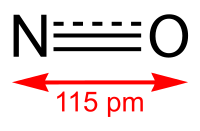
Highly Selective Silica‐supported Copper Catalysts Derived from Copper Phyllosilicates in the Hydrogenation of Adipic Acid to 1,6‐hexanediol
Sign Up to like & getrecommendations! Published in 2018 at "ChemCatChem"
DOI: 10.1002/cctc.201801580
Abstract: Hydrogenation of adipic acid (AA) is a potential way to prepare 1,6‐hexanediol (HDOL). Herein, silica‐supported copper catalysts derived from copper phyllosilicates were synthesized, characterized, and tested in the hydrogenation of AA to HDOL. In a… read more here.
Keywords: supported copper; adipic acid; copper; hydrogenation adipic ... See more keywords

Correlation between copper speciation and transport pathway in Caco-2 cells.
Sign Up to like & getrecommendations! Published in 2022 at "Journal of the science of food and agriculture"
DOI: 10.1002/jsfa.12292
Abstract: BACKGROUND Previous studies have demonstrated that in contrast to the properties of food-derived copper, water-derived copper exerts neurotoxic effects and exhibits different speciation during digestion. The cellular uptake efficiencies of different speciation of copper are… read more here.
Keywords: derived copper; copper; caco cells; accumulation ... See more keywords

Insights into Liquid Product Formation during Carbon Dioxide Reduction on Copper and Oxide-Derived Copper from Quantitative Real-Time Measurements
Sign Up to like & getrecommendations! Published in 2020 at "ACS Catalysis"
DOI: 10.1021/acscatal.0c01388
Abstract: We quantify the formation rates and faradaic efficiencies for liquid products of CO2 reduction on copper and oxide-derived copper in real time, in a single potential sweep. Compared with classical ... read more here.
Keywords: reduction copper; real time; copper; oxide derived ... See more keywords

Operando Spectroscopic Investigations of Copper and Oxide-Derived Copper Catalysts for Electrochemical CO Reduction
Sign Up to like & getrecommendations! Published in 2018 at "ACS Catalysis"
DOI: 10.1021/acscatal.8b04269
Abstract: Oxide-derived copper (OD-Cu) has been shown to favor C2 and C3 products in electrochemical CO reduction at lower overpotentials than polycrystalline copper (Cu-poly). Despite numerous studies and proposed mechanisms, the exact nature of the active… read more here.
Keywords: reduction; copper; oxide derived; electrochemical reduction ... See more keywords